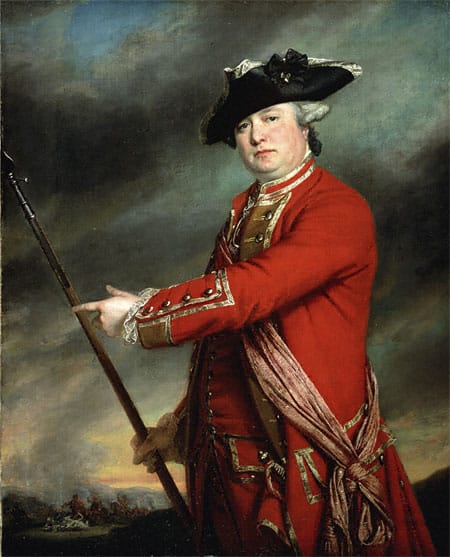Francis Smith was a British officer who is known for his service to the British crown during the American Revolutionary War. He was the commanding field officer during the British march to Concord during the Battles of Lexington and Concord and also served the British Army during the Siege of Boston, Battle of Long Island, and Battle of Rhode Island.

Major General Francis Smith: Military Service
Francis Smith is most known for his actions during the Battles of Lexington and Concord, but he was a seasoned soldier who had military experience and was a respected member of the British army.
While Smith did not realize it, he was given a near-impossible task. The provincials were well-organized and had been alarmed well before Smith arrived in Concord. With every passing hour that Smith marched towards Concord, the countryside was mobilizing, and the British were severely outnumbered.
At Lexington, Smith gave orders to Major John Pitcairn to tread cautiously with the Americans. He was not to engage them and wanted to take all necessary precautions to avoid any serious conflict. Pitcairn rode ahead and, by the time Smith arrived, had already engaged the provincials. Eight patriots lay dead, and the others were scattered. Smith called off the dogs as quickly as he got there, but it was too late. Nobody knows who fired the first shot.
Smith proceeded towards Concord, where he was met with fierce resistance and pushed back. He was forced to retreat to Boston under heavy fire and constant reinforcements. While the British had underestimated the colonists, Smith did do an excellent job managing a tough situation. Smith kept his men organized and kept retreating in an organized fashion. He was hoping that British guns would save them. His hopes were realized when Hugh Percy arrived and put enough fire on the patriots to allow Smith and his men to retreat into Boston safely.
He earned much praise for his actions from Thomas Gage and received a promotion to Major General.
Smith participated in the Siege of Boston and witnessed the British forced to leave the area, but he was able to get his revenge when the British fought General Washington and the Continental Army at the Battle of Long Island. He also served during the Battle of Rhode Island.
In 1778, he and his 10 Regiment of Foot returned to England after being overseas for 19 years.
